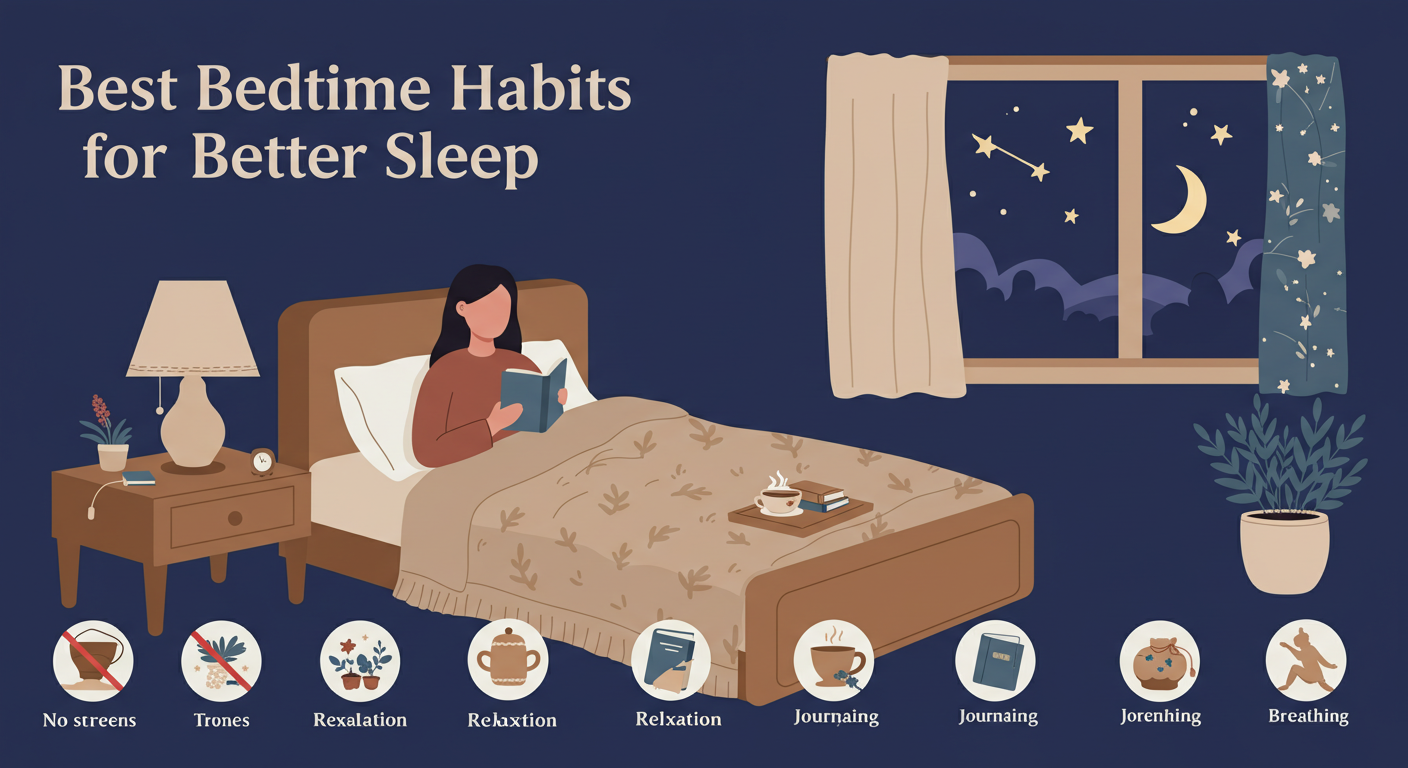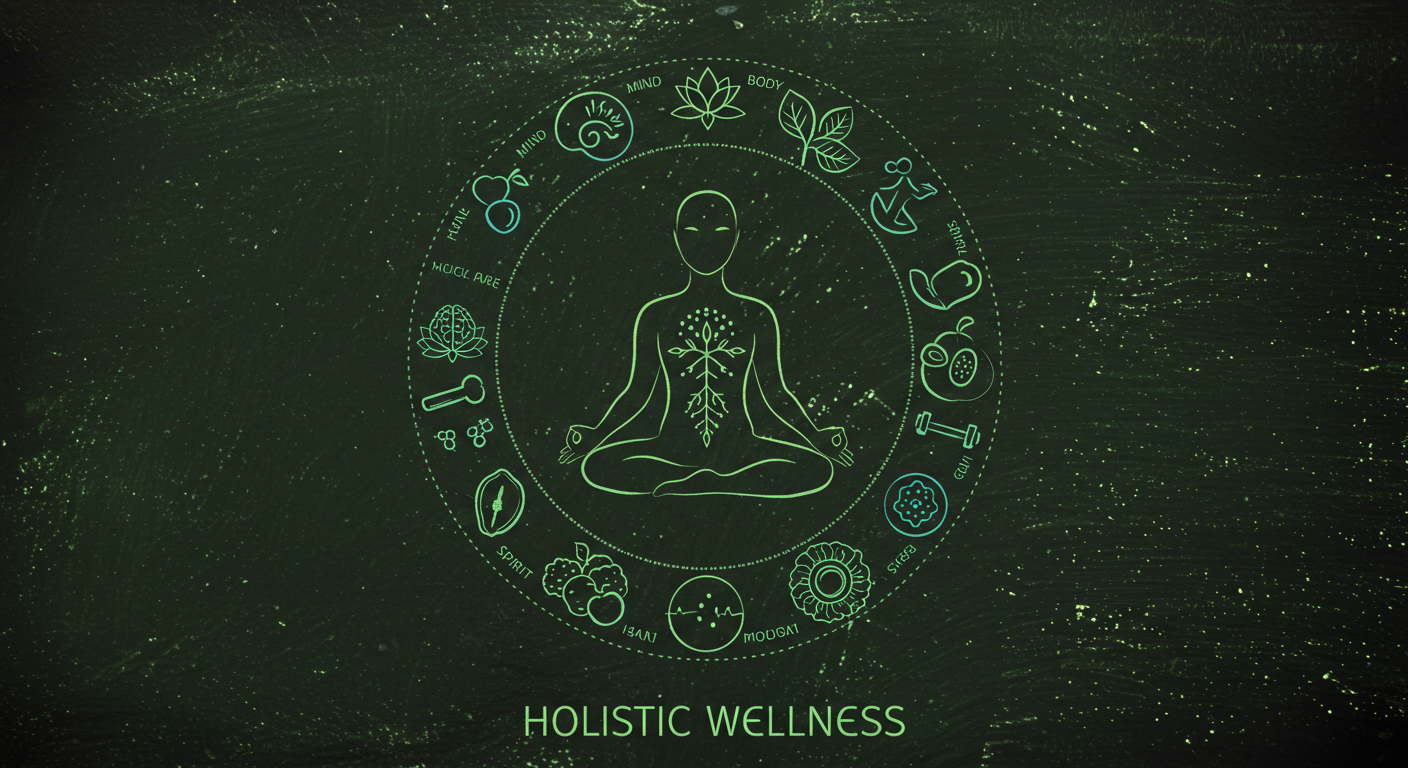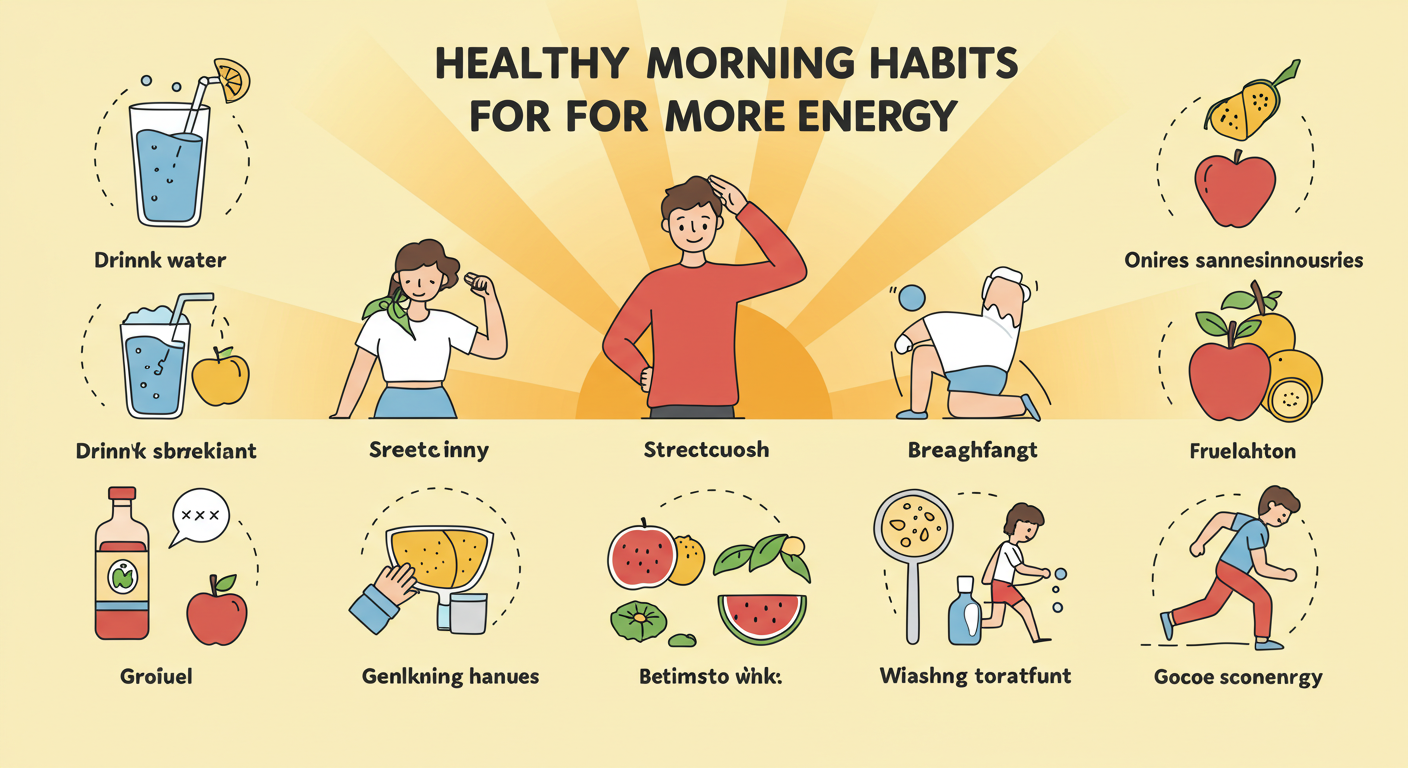15 Easy Ways to Sleep Soundly
I used to struggle with poor sleep, which left my mood low and my thinking ability fuzzy, but simple changes made a huge difference in my sleep quality. Blue light from smartphones, computers, and TV messes with melatonin, the sleep hormone that helps you relax for deep sleep. Now, I reduce nighttime light exposure by turning off electronic devices and bright lights 2 hours before bed and wear glasses to block blue light. This evidence-based trick, supported by a 2023 study, syncs my circadian rhythm, making it easier to fall asleep and enjoy a good night’s sleep. During the day, I soak up natural sunlight or use an artificial bright light device with bulbs to boost daytime energy and keep my body’s internal clock in synchronization, as a 2017 study of 100 office workers showed better sleep quality in the morning light, especially in winter.
To optimize my health, I steer clear of caffeine after late afternoon, as a 2023 research review found late caffeine consumption cuts total sleep time by 45 minutes and sleep efficiency by 7%, disrupting REM sleep. I sip decaffeinated coffee if I want a cozy evening drink. I also avoid long naps or irregular naps, since a 2021 review noted they can confuse my internal clock, making nighttime sleep harder. Instead, I stick to short power naps and follow a sleep schedule, hitting bed and waking up at similar times every day, which a 2020 review of 41 studies says boosts long-term sleep quality without an alarm. I take a low dose (0.1 to 10 milligrams) of melatonin supplements 2 hours before bedtime, after checking with my healthcare professional, since the Food and Drug Administration (FDA) doesn’t regulate their dosage or quality. For kids, I’d avoid long-term use in children due to limited research studies. Other supplements like magnesium, zinc, nitrate, omega-3, or resveratrol help me relax, but I test them one at a time to avoid a negative reaction.
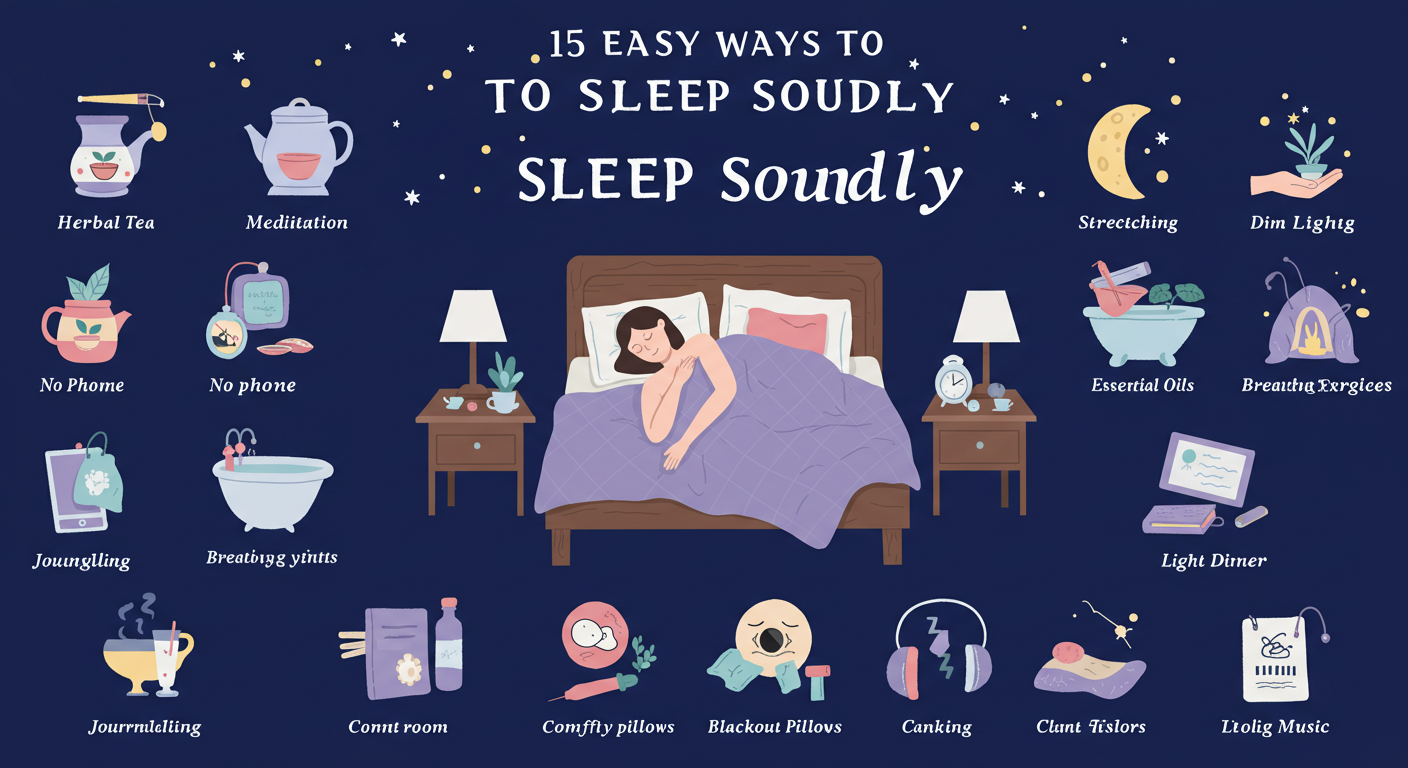
I skip alcohol, as drinks at night cause sleep apnea, snoring, and disrupted sleep patterns by altering melatonin production and hormone levels, per a 2023 review showing 33.9% of men and 17.4% of women in the United States face sleep disorders. An occasional drink at dinner isn’t harmful, but I avoid drinking alcohol close to bedtime. My bedroom environment is key: a comfortable bed with medium-firm mattresses and bedding like cotton, linen, or wool (from a 2024 review of nine studies) prevents lower back pain and promotes slow-wave sleep, especially in cool temperatures (65°F, 18.3°C) with good ventilation and low noise, allergens, and carbon dioxide. I minimize external noise and artificial lights from devices like alarm clocks to create a sleep atmosphere that feels just right for my preferences and habits.
To avoid nocturia (excessive urination at night), I reduce fluid intake and liquids 1–2 hours before bed, use the bathroom before sleeping, and limit late eating to a small snack of low carb food, as high carb food has a worse effect on sleep, per research. Relaxation techniques like mindfulness, meditation, deep breathing, visualization, or reading a book in a hot bath calm my mind, easing insomnia for 10% of adults with chronic insomnia and 20% with occasional insomnia. I do physical exercise (150 minutes a week), but not late in the day, as its stimulatory effect with epinephrine and adrenaline can cause sleep problems, per the Physical Activity Guidelines for Americans. A healthy diet, regular exercise, and the 10-3-2-1-0 rule—avoiding caffeine 10 hours, alcohol and food three hours, mentally taxing tasks two hours, and electronics one hour before bed—create a conducive sleep routine that fights obesity, diabetes, and health conditions while boosting heart health, immune health, and well-being.
Nightly Rituals for Restful Nights
I used to struggle with falling asleep, my mind racing and body restless, but a bedtime routine changed everything. Electronic devices like smartphones, tablets, computers, and televisions emit blue light, tricking my brain into thinking it’s daytime, which suppresses melatonin production and keeps me awake. Now, I put away these electronics during my nighttime routine, starting 30 minutes to 2 hours before bed, and use my phone’s red-light filter to avoid disruptive effects. This habit, part of my daily regimen, helps my brain relax and promotes restful sleep, while daily bright light exposure during the day keeps my sleep-wake cycle healthy, as studies show.
To make my bedtime smoother, I set a consistent sleep schedule, going to bed and waking up at the same time every day, even on weekends. This trains my brain to feel tired at the right hour, often without needing an alarm, and supports sleep hygiene. I avoid heavy meals or alcoholic beverages that cause indigestion, acid reflux, or bathroom trips, opting instead for a healthy light snack like cherries, grapes, kiwi, yogurt, or nuts, or sip non-caffeinated herbal teas with chamomile or lavender to calm my mind and induce sleep. If I’m hungry, these prevent stomach discomfort that makes it hard to fall asleep. A warm bath an hour before bed mimics the nighttime drop in core body temperature, creating a sensation that leaves me relaxed and tired, boosting melatonin production for better sleep quality.
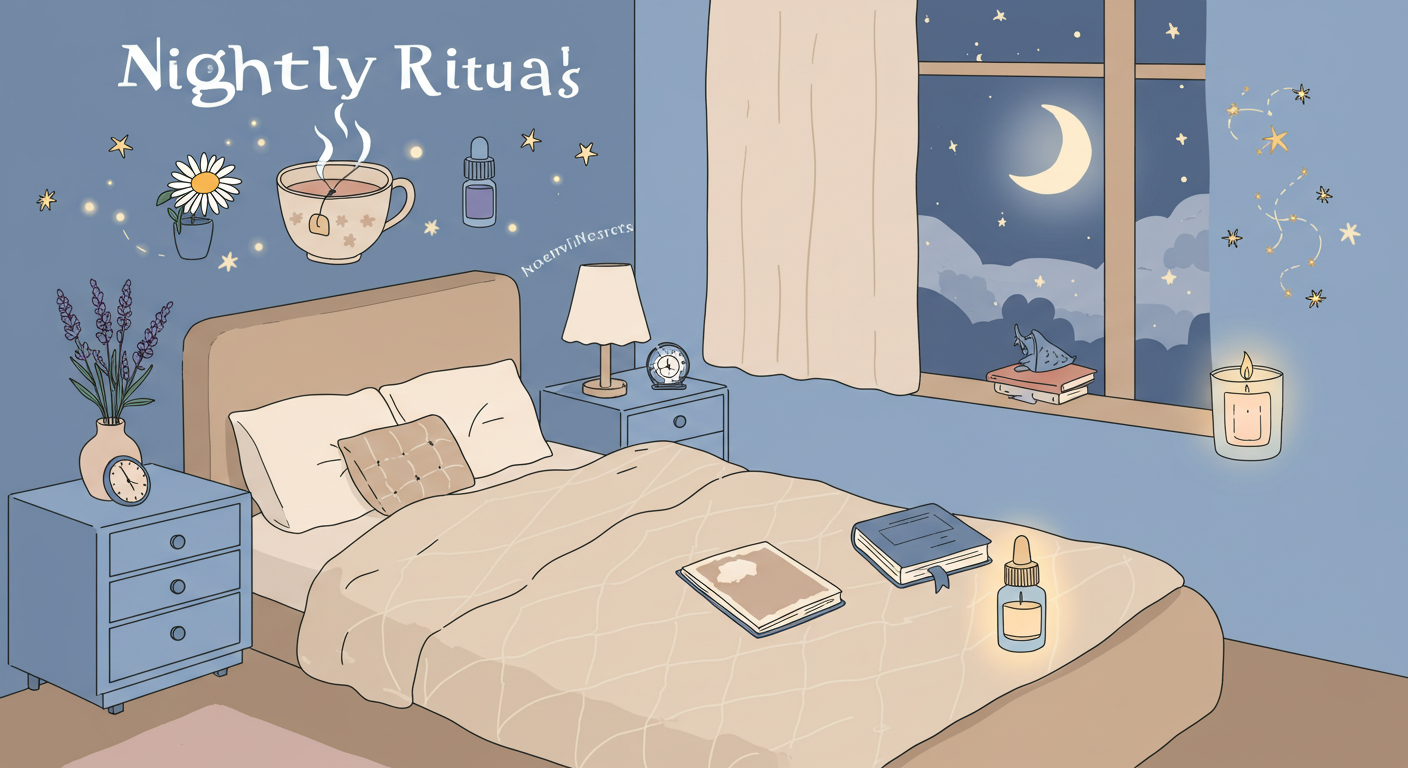
My bedroom environment is a sleep oasis—cool (set to 65 to 68 degrees Fahrenheit with a thermostat), dark with blackout curtains, and quiet by turning off noisy electronics. I use an aromatherapy diffuser with my favorite scent to create a soothing place, clear clutter, and ensure my bed and pillow are comfy to avoid cramping. Once my head hits the pillow, I focus only on rest. I also love relaxation techniques like deep breathing exercises, progressive muscle relaxation (PMR), or simple stretches from a daily yoga routine to release physical tension and mental tension. A massage before bed helps, too, keeping my body relaxed and improving sleep quality.
For my mind, I practice mindfulness meditation, focusing on thoughts and feelings without stressing, which speeds up sleep onset. Reading a book with a simple, uneventful plot under soft lamp light outside the bedroom signals my body it’s time to sleep, a habit I’ve loved since childhood for healthy sleep into adulthood. I avoid exciting genres like suspense or action. Journaling for five minutes or writing a to-do list for the next days’ tasks is restorative, clearing my thoughts and emotions in the evening to help me fall asleep faster. Listening to music, ambient sounds, white noise, or pink noise like rain or waves on streaming platforms or playlists acts as a relaxation tool, calming my worries and anxiety while masking other sounds for faster sleep onset. These activities, done every night, make my bedtime routine a game-changer for restful sleep.
Six Steps to Dreamy Nights
I used to lie awake at night, my mind tangled with work stress and family responsibilities, making quality sleep feel elusive. Now, I’ve learned that what I eat and drink before bed matters a lot. Avoiding heavy meals or large meals a couple of hours before bedtime prevents discomfort like feeling stuffed or hungry, which can disrupt sleep. Caffeine and nicotine, with their stimulating effects, linger for hours, so I skip them in the evenings—no late coffee or smokes for me. Alcohol might make you feel sleepy at first, but it can mess up your sleep later, so I steer clear to ensure a good night’s sleep. Getting outside during the day for some light exposure helps my body’s sleep-wake cycle, setting the stage for better sleep.
To make my bedroom a restful environment, I keep it cool, dark, and quiet, using room-darkening shades, earplugs, or a fan to block out noise and light-emitting screens. I avoid prolonged use of devices before bedtime, as light in the evenings makes it harder to fall asleep. Instead, I do calming activities like a warm bath or relaxation techniques to ease into sleep. A consistent sleep schedule is my secret weapon—going to bed and getting up at the same time every day, even on weekends, keeps my body well rested. As a healthy adult, I aim for seven hours to eight hours of sleep, and if I don’t fall asleep within 20 minutes, I leave the bedroom, read a book, or listen to soothing music until I’m tired, then return to bed.
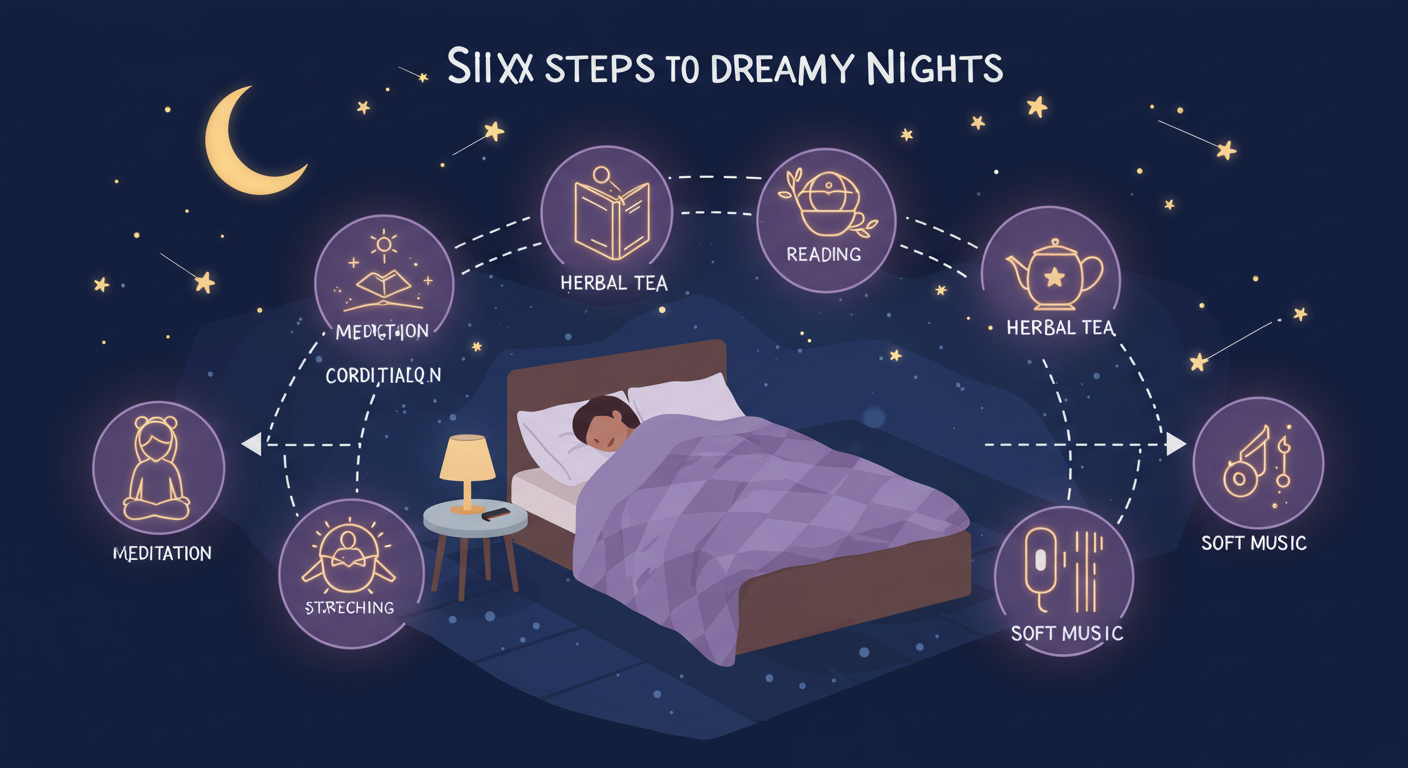
I’ve also cut back on long daytime naps, as they can mess with nighttime sleep. If I nap, I keep it to one hour and avoid napping late in the day, especially since I don’t work nights—otherwise, it adds to my sleep debt. Physical activity is a game-changer; my daily routine includes active time outside every day, which is helpful for better sleep, but I avoid being too active close to bedtime. To manage worries and anxiety, I practice stress management by getting organized, setting priorities, and delegating tasks. Before bedtime, I jot down concerns to set aside for tomorrow, and a bit of meditation helps ease my mind, making sleep come easier.
If sleepless nights or trouble sleeping persist, I know it’s time to talk to my health care provider to check for underlying causes like illnesses. These simple tips, backed by my own experience and habits, have transformed my sleep into something I look forward to. By weaving these daily routine changes into my life, I’ve found that better sleep isn’t just a dream—it’s a reality that keeps factors like stress at bay and helps me wake up feeling refreshed.
Simple Ways to Drift Off and Rest Well
I used to spend my evenings lying awake, battling trouble sleeping as my mind raced with worry and anxiety. Now, I’ve found that relaxing before bed makes a huge difference. By avoiding electronic devices like mobiles, tablets, and computers at least an hour before bedtime, I steer clear of blue light that stops sleep by tricking my brain into staying alert. Instead, I turn to reading a book, listening to soft music, a podcast, or guided meditation like a sleep meditation video to relax and ease sleep problems. These practical tips, part of my sleep routine, help me unwind and promote good sleep, while daytime habits like a regular routine keep my body on track for better sleep.
To create the right sleep environment, I make my room quiet, dark, and cool, using earplugs, good curtains, or blinds to block unwanted lights and keep my phone silent or facing down to avoid clocks or distractions. A cool room, well ventilated at the right temperature, feels easier to drop off in than a hot or stuffy one, and playing ambient sounds like rainfall, gentle music, or white noise works for me to enhance sleep quality, as it’s personal. I stick to a good sleep habit by getting up and going to bed at fixed times every day, even on weekends, to support my sleep hygiene. If I cannot sleep after lying awake, I don’t force it—instead, I get up, sit in a comfy place, and do something relaxing like reading or listening to quiet music until I feel sleepier, then return to bed.
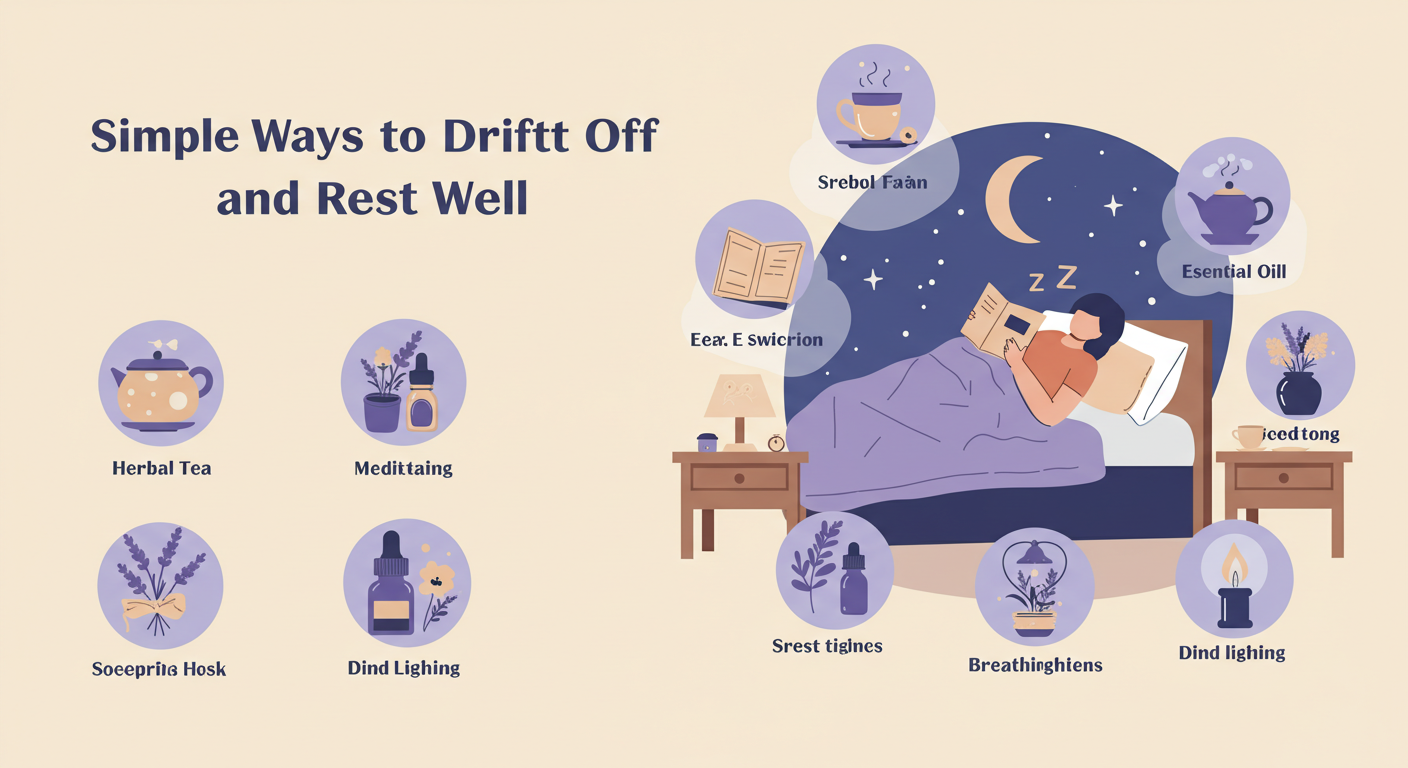
My good diet and regular physical exercise also boost my mental health, reducing stress and helping me sleep better. I avoid large meals, caffeine (like coffee), alcohol, and nicotine 1 to 2 hours before bed, as these stimulants keep me alert and stop sleeping well. I try to stay active during the day but skip energetic workouts 90 minutes before bedtime to prevent sleep problems. If worries creep in, I manage them by writing a to-do list for the next day in a notebook or talking to someone I trust to put my concerns to rest. Mindfulness techniques, like reframing unhelpful thoughts or self-help CBT techniques, and meditation help ease my stress, making it easier to fall asleep and enjoy the mental health benefits of good sleep, like boosting my mood.
If insomnia persists, I know to visit my GP or pharmacist for treatments to address any underlying issues. By weaving these habits into my daily life, I’ve turned sleep into a joy rather than a struggle. Trying techniques like sleep meditation or a regular routine has made my nights restful, and I wake up feeling refreshed, ready to tackle the day without the weight of anxiety or stress.






